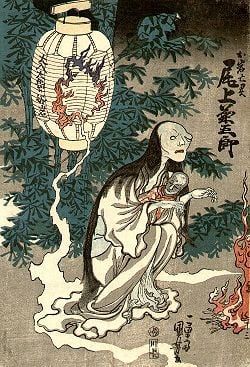Onomatopoeias: Sound Coming Alive
Some of the very first parts of speech we learn as babies are onomatopoeias, or words that are phonetic spellings of the sounds they represent. (Case in point: “With a moo-moo here and a moo-moo there. Old MacDonald had a farm…” and so on.) Many of these tend to do with animal noises—oink, neigh, quack, caw, cheep, woof, meow—but sounds from every aspect of life have been adapted into everyday language: splish-splash, tick-tock, honk, zap, fizz, et cetera.
As words that we’ve been familiarized to for our entire lives, onomatopoeias are easy to take for granted. For example, I remember the first time I had my mind blown by the notion that every language has their own unique collection of onomatopoeias. For example, while scissors go “snip” in English, the noise translates into “su-su” in Chinese, “cri-cri” in Italian, “riqui-riqui,” in Spanish, and “katr-katr,” in Hindi. Similarly, the sound a horn makes, “honk,” becomes “tut-tut” in French, “pu-pu” in Japanese, “baert-baert” in Norwegian, and “bim-bim” in Vietnamese. The sound of dripping water is rendered in French as “plic ploc,” and in German as “plitsch platsch.”
Although animals generally make the same noises worldwide, different cultures interpret these sounds with completely different words. In English a crowing rooster says, “cock-a-doodle-doo!” while in French it goes, “cocorico!” English ducks go “quack-quack,” while in Spanish it translates to “cua cua,” and in French, “coin coin.” A Spanish dog barking sounds like, “gau-gau,” while a Georgian pig grunting goes, “ghrutu-ghrutu.” (A bit more threatening than the English “oink.”) Even ghosts, while not technically animals, express themselves differently depending on their nationality. While English ghosts generally go, “boo!” or, “ooooooo!” ghosts in Japan have the sinister, “kekekeke,” while in Urdu they go, “hoho-haha,” and in Brazilian Portuguese, “huehuehue.”
The iconic “chugga chugga choo choo” noise that a train makes in English is expressed as “chik chik pok pok” in Korean, ignoring the sound of the whistle and focusing only on the sound of wheels on the track. German has the surprisingly adorable “mampf mampf,” the sound of a person eating noisily, akin to the English, “munch munch” or “om nom nom.” The French “ron pshi,” expresses both the inhale and exhale of a snore, where English only has, “zzzzzzzzz.” The Finnish “käkättää” represents an evil and maniacal laugh, similar to our, “muahahaha!”
Certain languages even have onomatopoeias we haven’t even conceived of in English. For example, the sound of merrymaking in Thai is “suaan saeh haeh haa.” The Japanese have a sound for a crackling fire, “pachi pachi.” The closest onomatopoeia we have for the sound a fire makes might be, “snap, crackle, pop,” but that can also be ascribed to breakfast cereal. Latvian has the sound of a bubble popping, “bliukš,” which can also refer to fireworks going off or other short, sharp sounds. The Quechua word “chheq” is the sound hair makes when it catches fire, which suggests that in Quechuan societies people must do a lot of leaning over open flames.
Do you have any alternative onomatopoeias to contribute?



